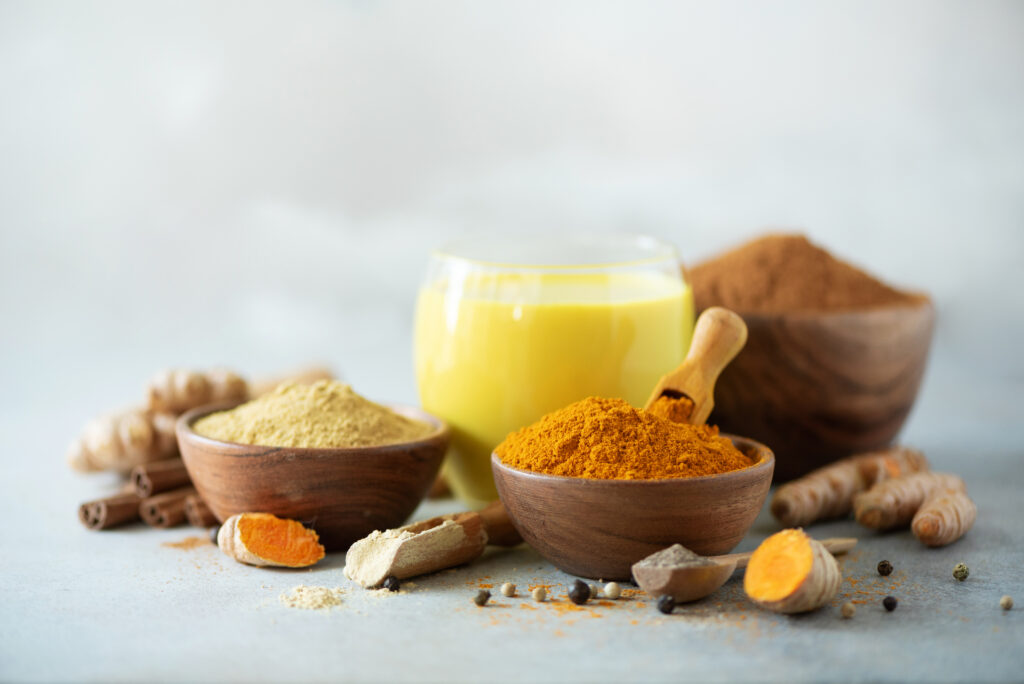How Just 3 Minutes of Daily Movement Can Protect Your Heart

We often hear that exercise is essential for heart health, but new research highlights something exciting: even small bursts of movement—just 3 minutes of vigorous activity a day—can significantly reduce cardiovascular risk, especially for women in middle age. The Science Behind It A recent study analyzed thousands of men and women aged 40-69, tracking their movement with accelerometers for a week and following their heart health for over eight years. Unlike self-reported surveys, this method provided precise data on their daily activity levels. The results were eye-opening: • Just 3 minutes of high-intensity movement per day was linked to a 45% lower risk of heart attack, heart failure, and other cardiovascular events in women.• Even short bursts—just 20-30 seconds—added up to big benefits.• The impact was less significant in men, suggesting unique benefits for women. Why Does This Work? High-intensity movement briefly stresses the heart in a way that promotes healthy cardiovascular adaptations. It improves circulation, strengthens the heart muscle, and helps regulate blood pressure—all without requiring long workouts or a gym membership. How to Add Quick Bursts of Movement to Your Day The best part? You don’t need to carve out extra time in your schedule. Everyday activities count! Try: • Running up the stairs instead of walking• Racing to catch a bus or get across the street• Carrying groceries quickly up the stairs• Doing 30 seconds of fast jumping jacks or high knees• Plyometric jumps (jumping up and down on a step or box) Movement Should Be Joyful At Vital You Functional Medicine, we always encourage our patients to find movement that feels good. Whether it’s dancing around the kitchen, playing with your kids, or taking an energizing walk, every bit counts. It’s inspiring to see research confirm that even short, everyday efforts can have a profound impact on heart health! What’s your favorite way to move? Share below! Book a call today to start your journey to a more vital and healthier you.
How Simple Rituals Can Help You Manage Stress

Stress can be sneaky. It creeps up on us, often without warning, and before we know it, we’re feeling overwhelmed, fatigued, or even physically unwell. In today’s fast-paced world—where we’re constantly juggling responsibilities, checking our phones, and rushing from one task to the next—our bodies interpret this constant busyness as a threat. When our nervous system perceives danger, it triggers a stress response. More stress leads to increased cortisol production, which, over time, can contribute to high blood pressure, weight gain, hormonal imbalances, and even a weakened immune system. But the good news? We can break this cycle. And the best way to do it is through intentional rituals. The Power of Rituals Rituals don’t have to be elaborate. They can be small, simple moments woven into your day that signal safety and calm to your nervous system. They act as a reset, helping you shift from a state of stress to a state of ease. Some easy rituals to try: ✨ Morning Stretch: Take five minutes to gently stretch before breakfast. It wakes up the body and sets a positive tone for the day. ✨ Midday Music Break: Listen to calming or uplifting music for 10 minutes after lunch to reset your energy and refocus. ✨ Evening Tea Time: Sip a warm cup of herbal tea in silence before bed, allowing your body to wind down for restful sleep. Why Rituals Work 1️⃣ They tell your nervous system: “You’re safe.” When we engage in predictable, calming activities, our brain understands that we are not in danger. This helps lower cortisol levels and prevents our body from staying in a chronic stress response. 2️⃣ They create calm through consistency. When we repeat small, soothing habits daily, they become anchors in our routine—moments of peace we can rely on, no matter what’s happening around us. Take the Next Step If you’re feeling stressed and unsure where to start, let’s create a personalized plan to help you manage stress and support your health. Book a call today to start your journey to a more vital and healthier you.
Understanding Women’s Unique Heart Health Risks

Heart disease is often thought of as a men’s health issue, but the truth is that it’s the leading cause of death in women worldwide. Yet, for decades, most heart health research focused primarily on men. Only recently have scientists begun to recognize and study the distinct cardiovascular risks that women face. As we recognize February as Heart Health Month, let’s break down some critical facts that every woman should know about her heart health. 1. Heart Disease is the #1 Killer of Women Heart disease doesn’t discriminate. It remains the top cause of death for women globally, including in high-income countries like the U.S. This is true across race and ethnicity, making heart health an essential conversation for every woman. The misconception that heart disease mainly affects men means that many women may not realize their own risks until it’s too late. 2. Menopause Dramatically Increases Heart Risk Estrogen plays a vital role in protecting the heart, which is why heart disease risk significantly rises after menopause. In fact, a postmenopausal woman’s risk of a cardiovascular event is twice as high as that of a premenopausal woman of the same age. Studies have also linked common menopausal symptoms like hot flashes and night sweats to an increased risk of high blood pressure. Women approaching or going through menopause should be especially vigilant about their heart health. 3. Women Have Unique Heart Health Risk Factors Certain conditions that only affect women can increase the likelihood of developing heart disease. These include: These are risk factors that men never experience, further proving the need for gender-specific heart health research and care. 4. Women’s Heart Symptoms Are Often Misdiagnosed Studies show that women experiencing heart disease symptoms are twice as likely as men to be told that their symptoms are due to ‘stress’ or ‘anxiety.’ This misdiagnosis can delay necessary treatment, leading to worse outcomes. Many women also minimize their symptoms or delay seeking care, believing that they are unrelated to heart health. 5. Heart Attacks Present Differently in Women While chest pain is the most well-known heart attack symptom, women are more likely to experience atypical symptoms, including: Because these symptoms can be mistaken for less serious conditions, women may not realize they are having a heart attack until it is too late. Awareness and early action are key. Heart Health Mistakes You Might Be Making Sometimes what seems healthy might not be helping. Here are three common heart health mistakes: Only Doing Cardio – Cardio is great, but mix it up! Strength training boosts blood sugar control, and high-intensity bursts are linked to better heart health. Low-Fat Diet – Low-fat diets aren’t the answer. Healthy fats (like avocado and olive oil) fight inflammation and support cholesterol levels. Plus, “low-fat” foods are often packed with extra sugar. Stressing Out – Stress is not a badge of honor. It triggers cortisol release and can raise blood pressure over time. Want Better Ways to Support Heart Health? Mix up your workouts with strength, cardio, and HIITAdd heart-loving fats like avocado and salmonFind ways to de-stress and prioritize sleep Knowledge is power. Understanding these unique risks allows women to take proactive steps toward protecting their heart health. Regular check-ups, a heart-healthy diet, physical activity, stress management, and knowing your personal risk factors are all essential parts of heart disease prevention. If you’re looking for a healthcare provider who takes a whole-body approach to heart health, we’re here to help. Book a call today to start your journey to a more vital and healthier you.
Understanding Women’s Unique Heart Health Risks

Heart disease is often thought of as a men’s health issue, but the truth is that it’s the leading cause of death in women worldwide. Yet, for decades, most heart health research focused primarily on men. Only recently have scientists begun to recognize and study the distinct cardiovascular risks that women face. As we recognize February as Heart Health Month, let’s break down some critical facts that every woman should know about her heart health. 1. Heart Disease is the #1 Killer of Women Heart disease doesn’t discriminate. It remains the top cause of death for women globally, including in high-income countries like the U.S. This is true across race and ethnicity, making heart health an essential conversation for every woman. The misconception that heart disease mainly affects men means that many women may not realize their own risks until it’s too late. 2. Menopause Dramatically Increases Heart Risk Estrogen plays a vital role in protecting the heart, which is why heart disease risk significantly rises after menopause. In fact, a postmenopausal woman’s risk of a cardiovascular event is twice as high as that of a premenopausal woman of the same age. Studies have also linked common menopausal symptoms like hot flashes and night sweats to an increased risk of high blood pressure. Women approaching or going through menopause should be especially vigilant about their heart health. 3. Women Have Unique Heart Health Risk Factors Certain conditions that only affect women can increase the likelihood of developing heart disease. These include: These are risk factors that men never experience, further proving the need for gender-specific heart health research and care. 4. Women’s Heart Symptoms Are Often Misdiagnosed Studies show that women experiencing heart disease symptoms are twice as likely as men to be told that their symptoms are due to ‘stress’ or ‘anxiety.’ This misdiagnosis can delay necessary treatment, leading to worse outcomes. Many women also minimize their symptoms or delay seeking care, believing that they are unrelated to heart health. 5. Heart Attacks Present Differently in Women While chest pain is the most well-known heart attack symptom, women are more likely to experience atypical symptoms, including: Because these symptoms can be mistaken for less serious conditions, women may not realize they are having a heart attack until it is too late. Awareness and early action are key. Take Control of Your Heart Health Knowledge is power. Understanding these unique risks allows women to take proactive steps toward protecting their heart health. Regular check-ups, a heart-healthy diet, physical activity, stress management, and knowing your personal risk factors are all essential parts of heart disease prevention. If you’re looking for a healthcare provider who takes a whole-body approach to heart health, we’re here to help. Book a call today to start your journey to a more vital and healthier you.
Can Curcumin Really Boost Your Metabolism Through the Gut Microbiome?

Curcumin, the vibrant yellow compound found in turmeric, is gaining attention for its potential to support metabolic health. This polyphenol, known for its role in traditional medicine and culinary uses, is not just a colorful spice. It offers a range of benefits, particularly in relation to metabolism, blood sugar, insulin regulation, inflammation, and weight management. But there’s a catch: curcumin is notoriously difficult for the body to absorb. This raises an important question: Is it worth incorporating curcumin into your diet if it’s not readily absorbed by the digestive system? The Fascinating World of Curcumin Turmeric has been used for centuries in various cultures, primarily in cooking and traditional medicine. However, its active component, curcumin, has recently become a hot topic in health research. Numerous studies have highlighted curcumin’s anti-inflammatory and antioxidant properties, making it a favorite among health enthusiasts. But here’s where things get interesting: a recent research review (PMID 39062953) suggests that curcumin doesn’t necessarily need to be absorbed in large quantities to exert its beneficial effects on metabolism. This new understanding opens the door to exploring how curcumin works in the gut and its broader implications for health. Curcumin and the Gut Microbiome One of the key findings of the research is that curcumin may have a significant impact on the gut microbiome—the vast community of microorganisms living in our digestive tract. The review indicates that curcumin actively shifts the gut microbiota, favoring beneficial bacterial strains such as Bifidobacteria and Lactobacilli. These friendly bacteria play a crucial role in digestion and overall health, contributing to processes that influence metabolic functions. Butyrate-producing bacteria, which are essential for maintaining gut health and regulating inflammation, also benefit from the presence of curcumin. This shift in gut microbiomes initiates a cascade of events that influences metabolic health. The beneficial effects of curcumin extend beyond its direct actions; it transforms the environment in our gut, fostering a balanced microbiome that can enhance metabolism. The Multi-Pathway Power of Natural Compounds The intricate relationship between curcumin and metabolic health underscores the complexity of natural compounds. Unlike synthetic drugs, which often target specific pathways, natural compounds like curcumin tend to affect multiple pathways simultaneously. This characteristic can make them more challenging to study but also more powerful for our health. The multi-faceted effects of curcumin remind us that what we consume can significantly influence our body’s overall function. By supporting beneficial gut bacteria, curcumin may help improve insulin sensitivity, lower blood sugar levels, and even aid in weight management. These effects highlight the potential of curcumin as a functional food ingredient that can contribute to metabolic health in various ways. Incorporating Curcumin into Your Diet If you’re looking to boost your metabolism and overall health, adding more turmeric (and thus curcumin) to your diet is a delicious and effective strategy. Here are some easy and tasty ways to incorporate this golden spice into your meals: Conclusion The emerging research on curcumin’s impact on the gut microbiome and metabolic health is promising. While its absorption challenges have raised questions, understanding its role in supporting beneficial gut bacteria suggests that curcumin can still be a valuable addition to your diet. So, the answer to the question of whether curcumin is worth your attention is a resounding yes! By incorporating this potent spice into your meals, you can take a proactive step toward enhancing your metabolic health and overall well-being. Book a call today to start your Journey to a more vital and healthier you!
Are Your Hormone-Related Health Issues More Than Just Estrogen and Progesterone?

Hormonal imbalances encompass more than the frequently discussed estrogen and progesterone, playing a crucial role in the myriad of symptoms many individuals face today. Are you struggling with period problems, PMS, mood swings, painful breasts, a vanishing libido, hot flashes, night sweats, or brain fog? If you’ve ever wondered whether these issues stem from your hormones, the answer is likely yes. But there’s more to the story. Hormonal disruptions can often be traced back to a series of underlying causes, overlooked yet significant. In my practice, I’ve identified six prevalent factors contributing to these imbalances: Navigating the complex world of hormone health can feel daunting, but it doesn’t have to be a journey you take alone. Demystifying the underlying causes of your symptoms is the first step towards reclaiming your health, and that’s precisely where my expertise lies. If you’re ready to adopt a root-cause approach to your well-being and empower yourself with knowledge and strategies to optimize your hormone health, you’re in the right place. Book a call today to start your journey to a more vital and healthier you.



